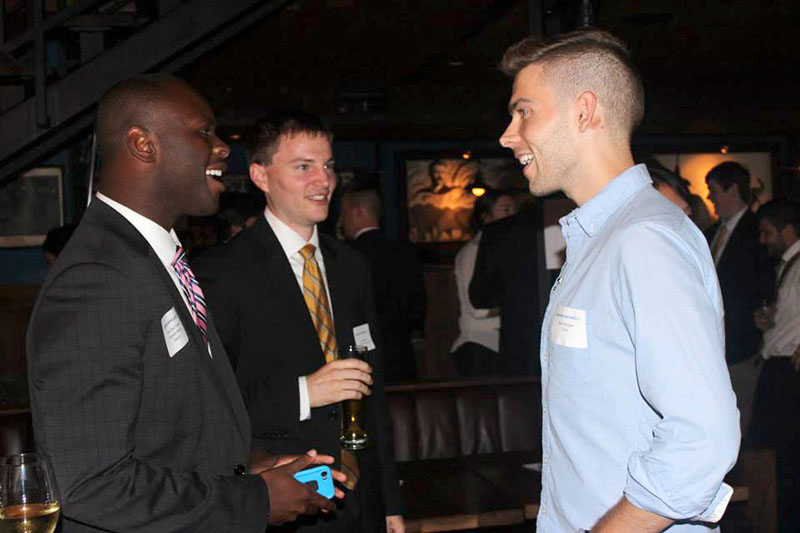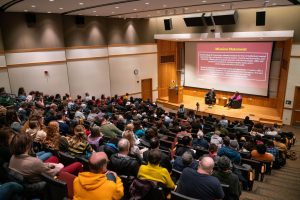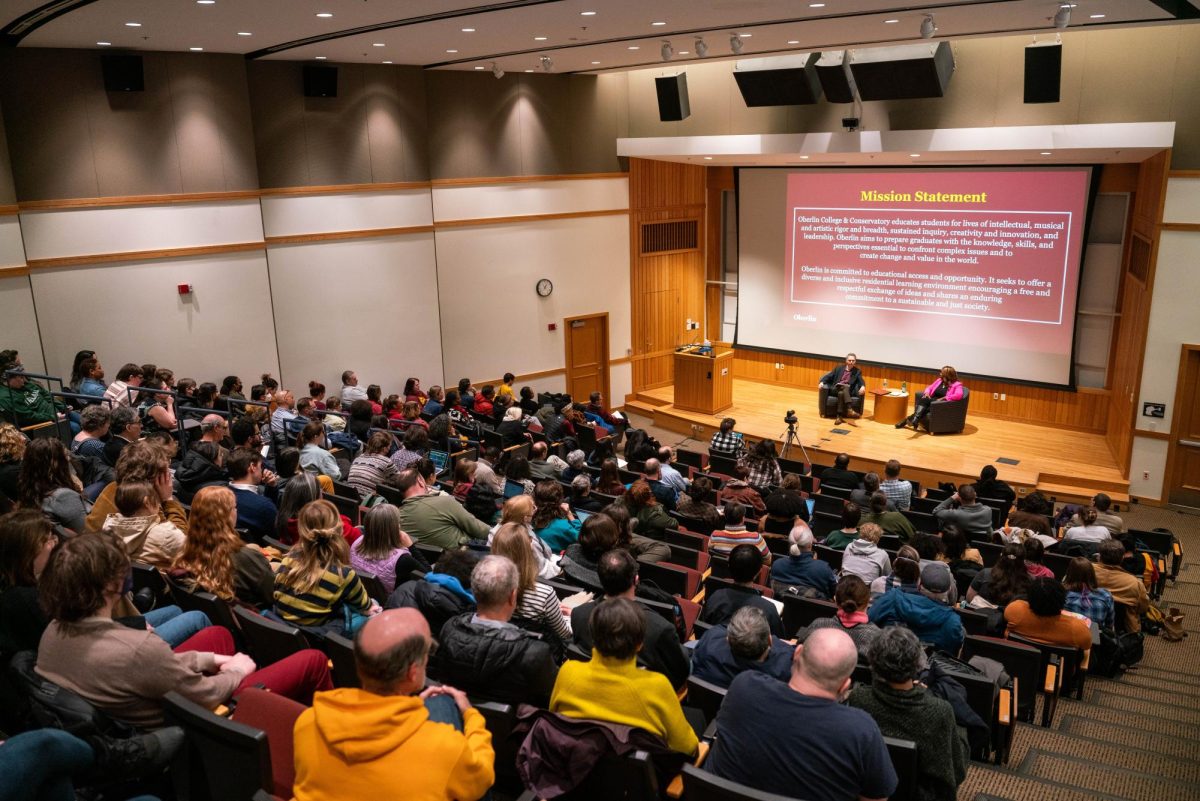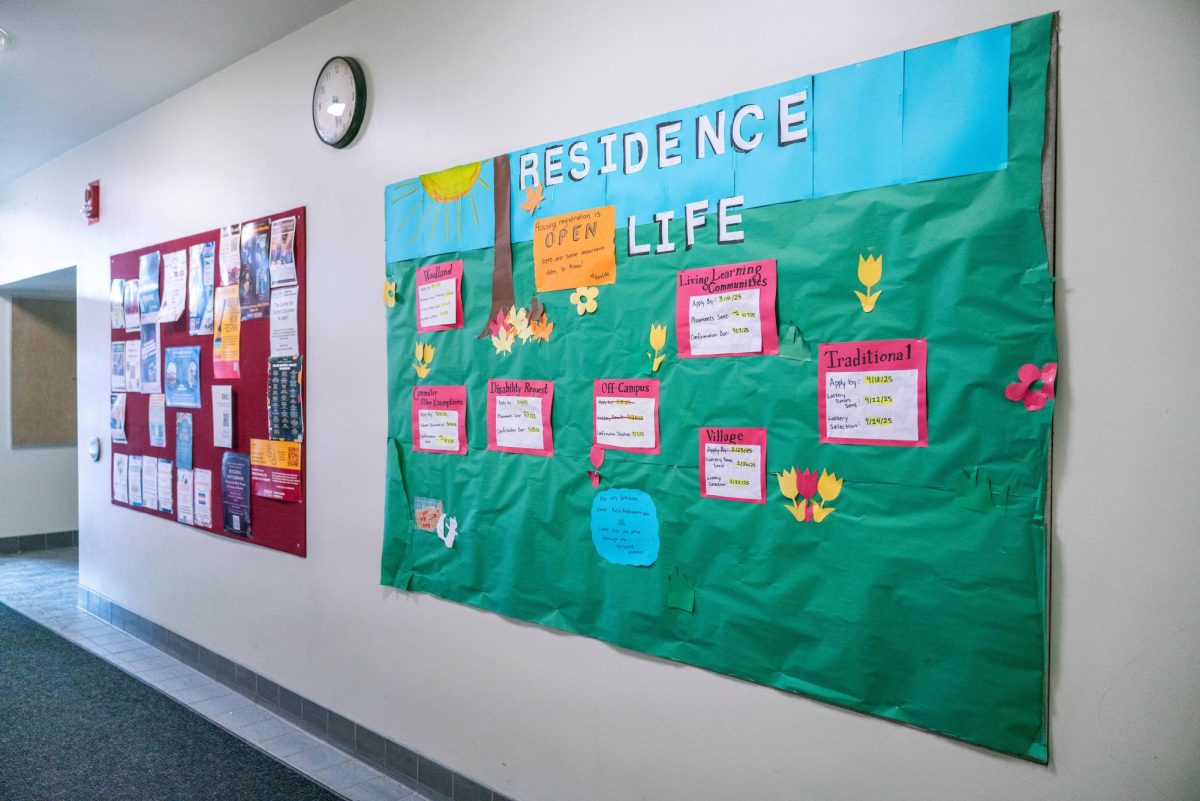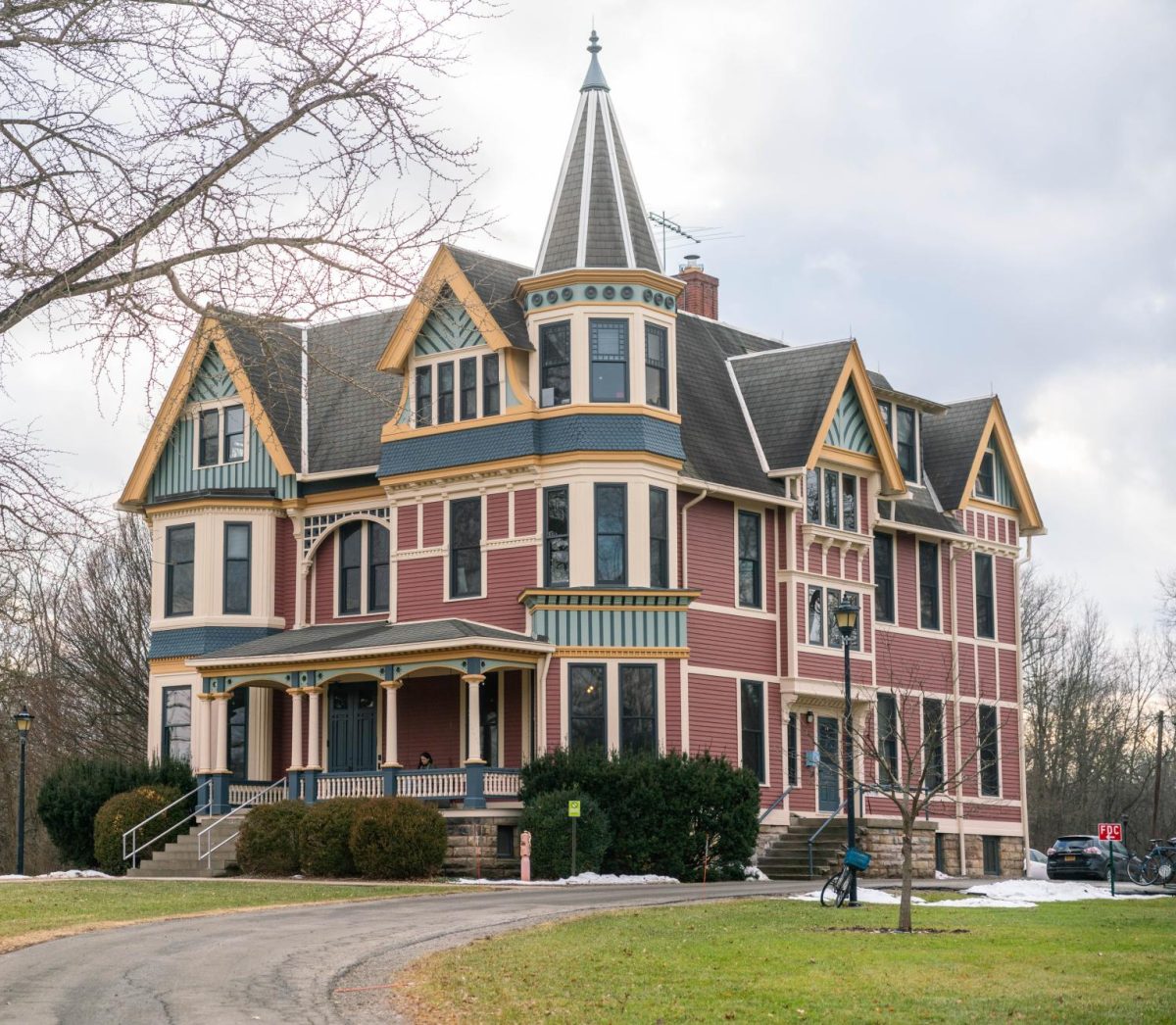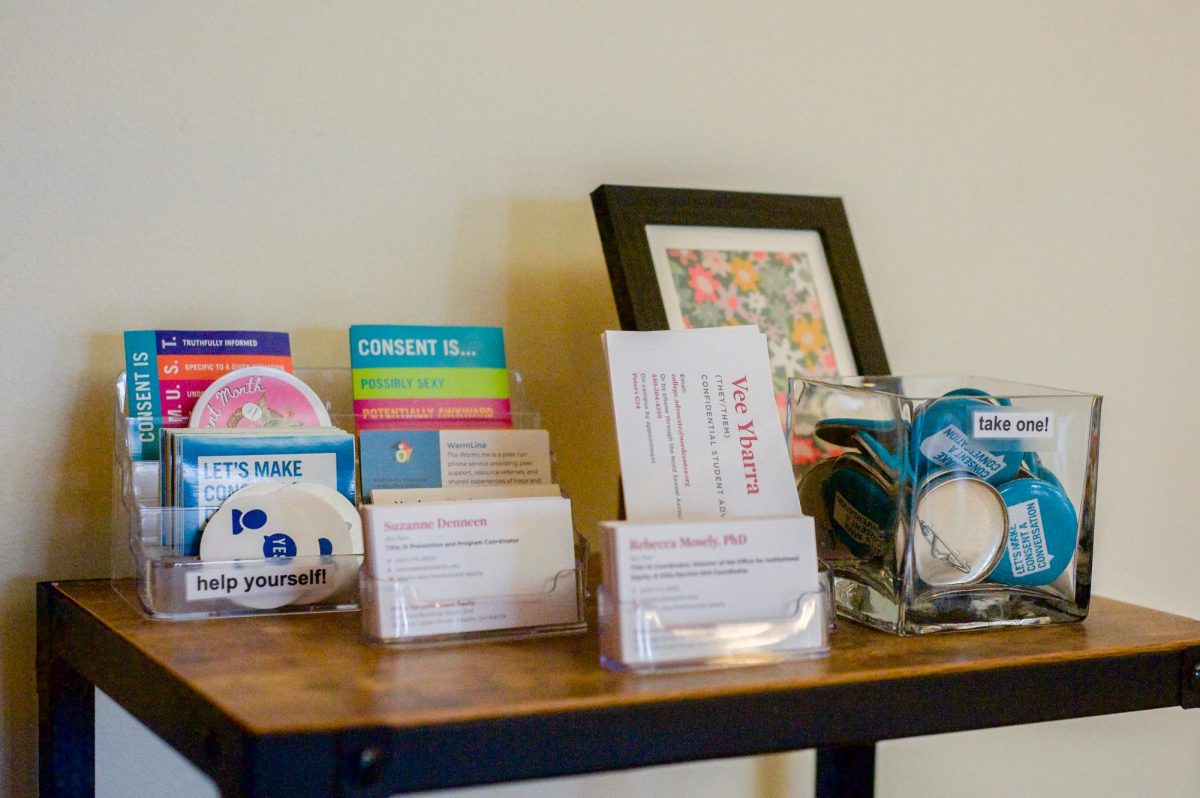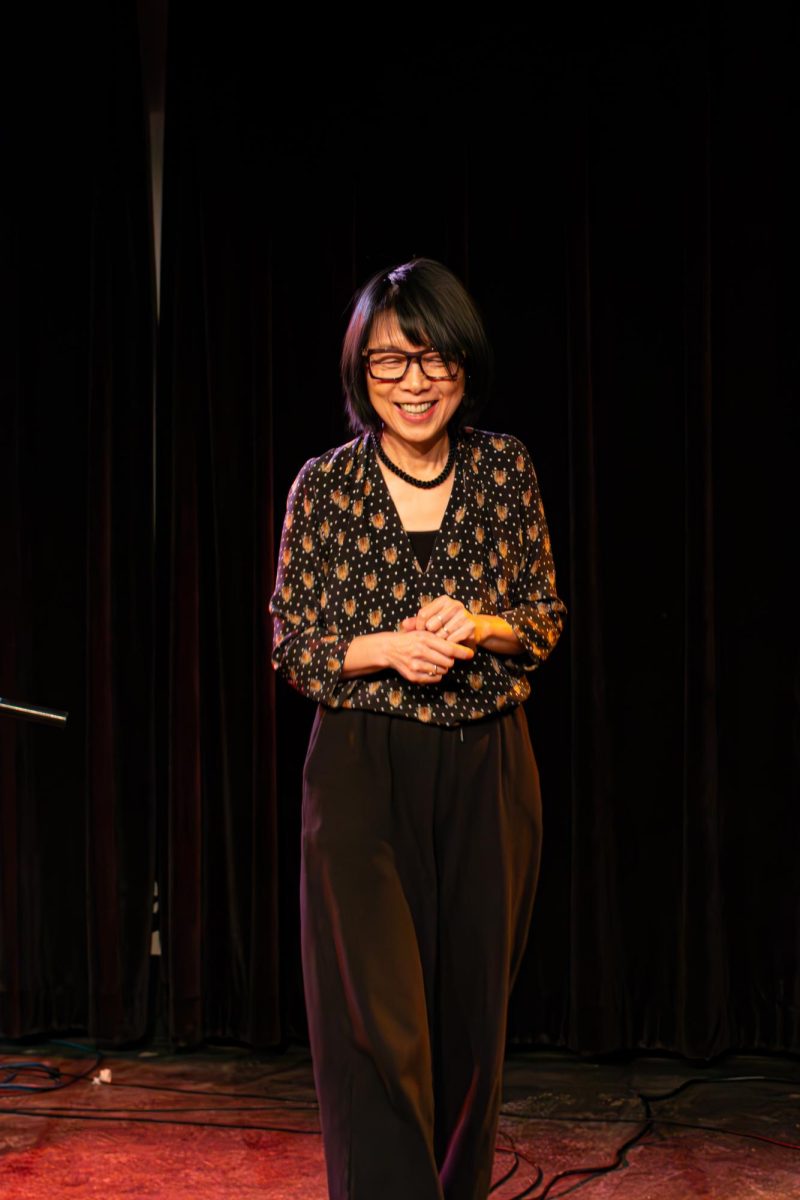LaunchProgress Sees Success in Primary Season
Luke Squire, OC ’11, (center) converses with Councilman Marcus Madison (left) at the Celebrating Young Leaders in Politics event in Washington, D.C. Squire, along with Poy Winichakul, OC ‘11, recently founded a political action commit- tee which aims to urge young, progressive candidates to run for office.
September 19, 2014
Luke Squire and Poy Winichakul, both OC ’11, are trying to upset the political status quo. Just over a year after starting LaunchProgress, a non- profit and political action committee devoted to electing young progressive candidates to public office, the two Oberlin grads are seeing the fruits of their labor as the 2014 election cycle heats up.
The two students chaired the Oberlin College Democrats together and taught an ExCo on civic engagement to try to bring some of their political zeal to the student body. Despite going their separate ways after graduation, the pair remained in close contact, according to Squire.
In January 2013, Squire and Winichakul bonded over President Obama’s second inauguration, and the idea for LaunchProgress was born.
“We were just having drinks at my house and talking about the state of politics and we kind of hung on this fact that even though a plurality of Americans voted for more progressive candidates — so even Democratic candidates — the majority in the House still went to Republicans. So we started talking about what caused that and what we could be doing to fix that,” said Squire.
The solution the two came up with was to prime young progressive candidates for state and local offices with the intention that someday those same candidates would rise to positions of national authority.
Acting quickly on their idea, Squire and Winichakul founded the LaunchProgress Action Fund in August 2013. The political group, which at its birth was a nonprofit dedicated to recruiting young progressives and urging them to run for public office, has since expanded.
In February 2014, LaunchProgress became both a nonprofit and a political action committee, or PAC, allowing it to directly help its endorsed candidates finance their campaigns.
LaunchProgress exclusively endorses candidates between the ages of 18 and 35 who meet the definition of progressive, according to Squire and Winichakul. Its definition of progressive is based on six value areas, including social equality, economic equality, environmental equality, civic engagement and election reform, and access to education.
Winichakul said that LaunchProgress does not simply endorse any progressive candidate, but rather candidates who understand the organization’s long-term goals.
“We are also looking for candi- dates who are going to run for higher office in the future,” said Winichakul. “Our whole vision is that we will have supported candidates who will grow the progressive bench for higher office and national leadership positions. So we develop these candidates locally and at the state level now, and then they will go on and be national leaders, and we want good quality candidates for those positions, which we currently don’t really have.”
In this election cycle the PAC endorsed 10 candidates, nine of whom were successful in their primaries and will continue to the November general election. The PAC supported three candidates in Ohio, four in Michigan and three in North Carolina.
One of the challenges the PAC faces in electing young progressives to office is the gerrymandering of many states.
“It’s pretty rough right now for young progressives, especially in the states we’re working in. With the way things are districted, it’s really not easy to elect young progressive candidates,” said Squire.
Winichakul said she agreed, stating that the result of excessive gerrymandering, an abundance of safe districts, is harmful to the electoral process.
“[Gerrymandering] discourages people to run. It discourages people from the same party to run and it dis- courages people from the other party to run and if they do run it’s hard for them to win. It’s also discouraging for people to vote,” said Winichakul. “People feel that there isn’t a reason to vote if there isn’t a competition. There’s a lot more awareness and media and education when there are competitive races. That hurts pretty much everyone.”
Depsite the difficulty of the work, Winichakul said she could not have it better.
“I get to support people I believe in 100 percent, which is definitely not what pretty much anyone can say. I feel very lucky to be able to do this; it is an extreme privilege and to work on everything I want to work on in the way I want to work,” she said.


